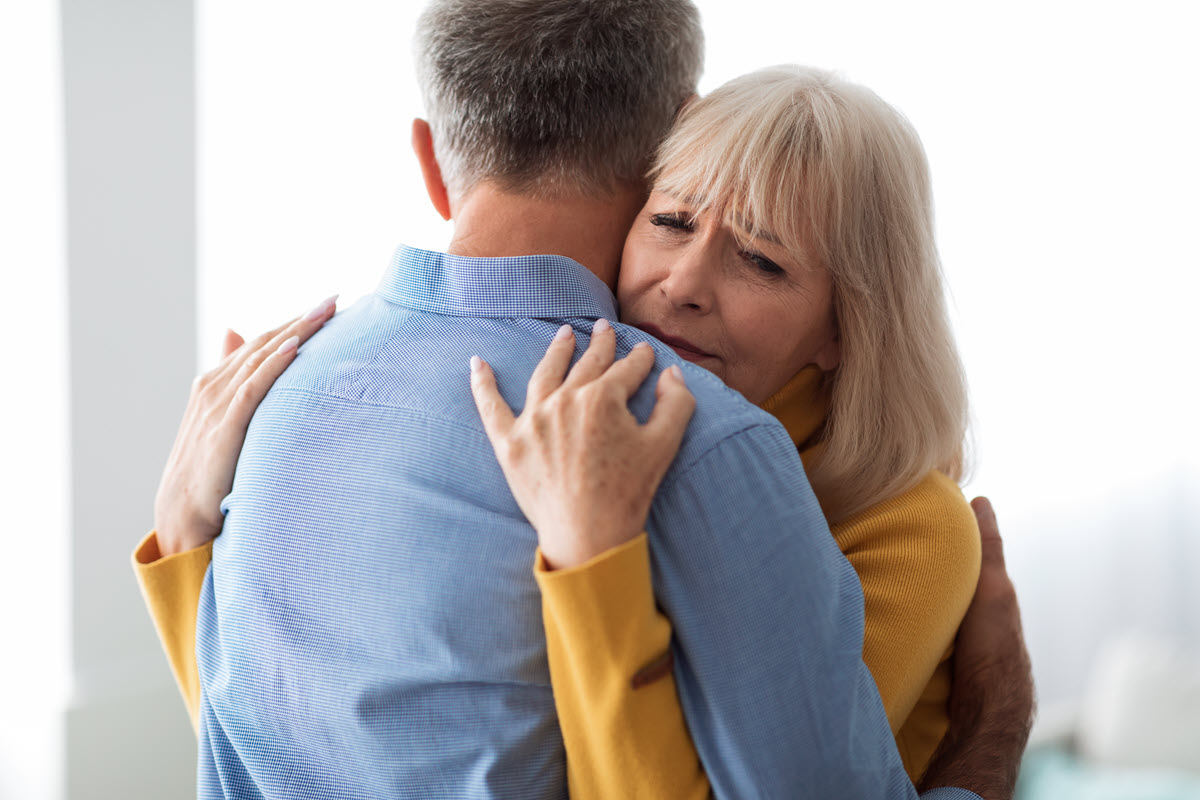
Tips for Grieving the Death of a Loved One
If You're Looking For Help, It's Okay
I’m sorry you have to go through this and that you are here because you are hurting, deeply. If you are feeling alone, please know that there are people who want to help you through this. While friends and family can help in some ways and be there for you at times, there may be some things you need to talk about that friends and family don’t understand or they are not comfortable hearing right now. So, you are looking for some help, it’s ok.
If this is your first loss, it may seem unfamiliar and you feel alone in all this. If you have grieved before and have lost another loved one, some things might seem familiar, and you remember feeling this way at those other time/s.
Typical Stages of Grief & What To Expect
There is no formula for the extent of how deeply and profoundly each death affects us. People often tell me that they are surprised at how hard the loss of a friend hit them, more so than when a family member died.
When a loved one dies, everything changes … everything. It’s okay to feel lost, alone, shocked, mad, abandoned. Maybe you have not felt this deep emptiness ever before. When a loved one dies, it can feel like the rug has been pulled out from under you, and you are left without direction in this strange landscape of grief. Nothing is quite like it used to be. One thing that people say is that they thought they were prepared, but nothing could have prepared them for the sideways roller coaster of grief. No matter how you plan or make arrangements for it, the loss, shock, and the void in us is not what you expect.
And death of a loved one can happen in so many ways. Maybe it was a long-term illness – people often say, “It happened so quickly for taking such a long time”, or a death can be sudden. Whether it is a family member, a pet, or a best friend, death leaves a void, a hole in your soul where the loved one used to be.
And if there is some unfinished business with the deceased, this can add to the stress of grief and loss.
It can seem so unfair when a loved one dies, and you are left wondering about the “why” of it all. Why her/him? Why now?
And when you have been designated to work on the person’s estate, you don’t really have time to grieve, because you go straight to work on the estate business.
Physical illness or conditions can erupt because your immune system has taken such a hit.
The first year after a death - the holidays, birthdays, are extremely difficult without the loved one, and emotions can overtake you without notice.
Grief takes an enormous amount of time and energy, cuts down the immune system, and makes it so that you wonder how you will get through the day. At first, when the grief is new, you can start your day hoping that you will make it until noon because you are so exhausted and overwhelmed. After some time passes, you hope you will be okay until 2:00 pm, then you try to get through the entire day
And there is no timeline or linear stages to grief; it takes as long as it takes, and it takes its own path. People often ask if they are “doing it right”. Everyone grieves differently. There is no right way to grieve. The grief will always be a part of you. It is the cost of love.
You don’t just “get over” grief.
You do the best you can to take care of your emotional, mental, physical, and spiritual health by getting the help you need, while you create your new normal, your new life without them in your life physically. Knowing that they are with you in spirit can be a tremendous comfort and can help you know that you loved and were loved.

Advice From a Grief Counselor
Here are some tips for getting through this most difficult time:
- Take a break. Grief can be exhausting at times. Chances are, your body knows when you are done for now and you need to take a break for a few minutes or for the rest of the day. You can acknowledge when it is time to stop and take a break.
- Move, change your environment. When you take that break, go for a walk, cry, take a warm bath. This is how you can take care of yourself during this time, when you need to take a break from a situation.
- Be in the present. So many people who are grieving have regrets about the past or they are worrying about the future. You can take some deep, slow, relaxing breaths, be in this moment - right here, right now. This will help to get you connect with the present and get out of your head.
- Get professional help with this. Grief work is called work for a reason.
It might be the hardest work you ever do. Grief and loss can feel like a tsunami of emotions. Because of this tsunami of grief and the roller coaster of emotions, a lot of people feel overwhelmed and alone in their grief, so they isolate themselves. You don’t know how it is unless you have been through it.
Talking with a non-judgmental professional can help with the loneliness and unfamiliarity of grief. When you find a good, safe space, and a good therapist to connect with and talk to about what you are going through, you can begin to calm, soothe, and heal.
“Only people who are capable of loving strongly can also suffer great sorrow, but this same necessity of loving serves to counteract their grief and heals them.”― Leo Tolstoy
I help people as they go through grief and loss to get back to their lives, and I can help you too. Someday you realize that you can go back out into the world, wounds and all.
Someday the tears will turn to smiles.
The journey of personal healing and growth is unique for each individual, and psychotherapy can provide invaluable support along the way. By fostering self-awareness, encouraging healthy coping strategies, and promoting goal attainment, therapy equips individuals with the tools necessary to navigate life’s challenges and embrace change. Remember, seeking help is a sign of strength, and through this process, you can unlock your full potential and lead a more fulfilling life.
If you’re looking for guidance on your personal growth journey, consider reaching out to Dr. Melissa Valentina: 954-737-2364. Together, we can explore the depths of your thoughts and emotions, paving the way for a brighter, more empowered future.
The 15-minute consult is my gift to you.








